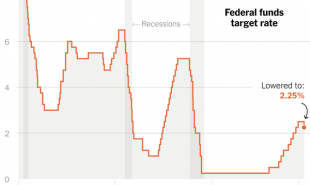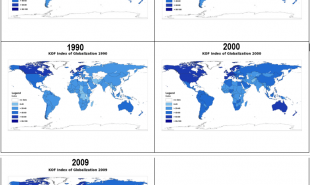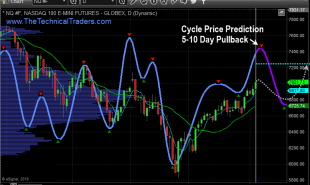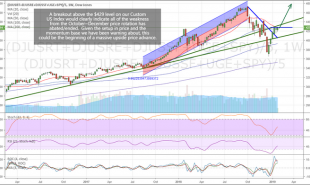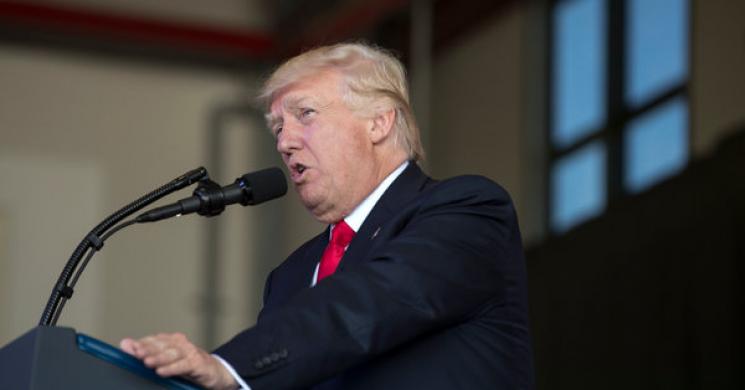
On Wednesday, President Trump tweeted, "I will be announcing my decision on the Paris Accord over the next few days." Meanwhile, several publications are reporting that the decision has been made and that the president has decided to withdraw America from the climate agreement. It seems unlikely that he's still deliberating. Is this intended to be a gameshow-like build-up to a big reveal? Is Trump trying to out-negotiate Mother Nature? Either way, the suspense is killing us. Literally.
Paris climate deal: frustrated world leaders prepare to move on without US
Trump is reportedly poised to pull out of Paris – prompting murmurings that the world would be better off without American involvement
Via Oliver Milman
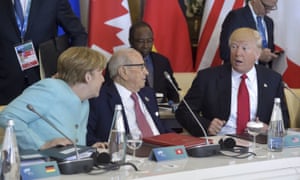
Donald Trump’s Twitter pledge to make a decision on whether to remain in the Paris climate agreement this week promises resolution to months of fevered lobbying over US involvement in the global accord.
But while America’s traditional allies and environmental groups continue to urge Trump to stay within the Paris deal – in which nearly 200 nations have pledged to limit global temperatures to a 2C (3.6F) increase on the pre-industrial era – the actions of the US president, most recently at the G7 meeting in Sicily, have begun to provoke murmurs that perhaps the world would be better without American involvement.
The final G7 communique saw the US unusually break with the other six nations by failing to commit itself to the Paris agreement, which Trump promised to “cancel” during the presidential campaign, and reports on Wednesday claimed he had decided to exit. The exasperation of European leaders suggested they are ready to move on with or without the world’s second largest emitter of greenhouse gases.
“The whole discussion about climate has been difficult, or rather very unsatisfactory,” said German chancellor Angela Merkel. “Here we have the situation that six members, or even seven if you want to add the EU, stand against one.”
The US formally turning its back on perhaps the last best chance of a coordinated response to climate change would certainly carry heft. Frantic calculations by several thinkthanks and universities have estimated that US withdrawal would add up to 3bn tonnes of extra carbon dioxide to the atmosphere every year, raising the global temperature by 0.1C (0.2F) to 0.3C (0.5F) by the end of the century.
Such a regression would be compounded if other countries took the United States’ lead and also decided to quit Paris, or at least not strive to fill the void in emissions reduction. This would have grave implications for coastal cities facing sea-level rise, parts of the world already blighted by heatwaves and food insecurity, and the planet’s endangered species.
While US emissions would start to level off rather than continue their gradual decline, there are signs that India and China, the two other national heavy hitters in emissions, are moving away from coal more quickly than expected, according to Climate Action Tracker.
This has led several economists and large US businesses to fret that the coming boom in solar, wind and other renewable energies will not take place in the US. China signaled its intent earlier this year by announcing it will invest $360bn in renewable energy by 2020, creating more than 13m jobs in the sector.
If the economic fallout of leaving the Paris deal does not sway Trump, the diplomatic and security ramifications may. Rex Tillerson, the secretary of state, has urged the US to “keep a seat at the table” in order to maintain its international standing, while UN secretary-general António Guterres has raised the possibility of “risks of conflict” if climate change is not properly addressed.
If Trump does decide to stay in the deal, it is likely he will attempt to “renegotiate” it, which would mainly involve the US revising down its goal of reducing emissions by 26-28% by 2025 based on 2005 levels. Opponents of the deal, such as Trump strategist Steve Bannon and Environmental Protection Agency chief Scott Pruitt, have framed Paris as a “bad deal” for the US that may even hinder Trump’s domestic agenda of winding back various environmental regulations.
Several independent legal experts, as well as those who helped craft the Paris agreement, reject this view, pointing out that the edifice is built on a series of voluntary non-binding goals submitted by countries. Paris is essentially a statement of intent, a signal from governments to their citizens and businesses that low-carbon economies are on the way and that this inevitability should be financially supported.
Some supporters of Paris are now wondering how useful it would be to have a disengaged US within such a structure. The American public is largely in favour of the Paris deal and could be given the misleading impression that their government is addressing the climate issue by simply staying put, despite tearing down Barack Obama’s climate policies such as the clean power plan at the same time.
“Wanting the US to remain is a short-sighted, knee-jerk reaction,” said Luke Kemp, an expert in international environmental policy at the Australian National University. “The international community should be much more worried about the real domestic actions of the US, rather than whether it is symbolically cooperating internationally.”
Kemp points out that the US could act as a drag upon the international climate effort if it doesn’t leave. “The US and the Trump administration can do more damage inside the agreement than outside it,” he said.
The momentum is reportedly with the “leave” faction, with a group of 22 Republican senators – minus the notable voices of Lindsey Graham and John McCain, who want the US to remain – urging Trump to make a “clean break” from Paris. On Tuesday, Trump again met with Pruitt, one of the most vociferous opponents of the deal.
But the White House’s confusion over the decision and its wider ramifications was perhaps summed up best by Sean Spicer, Trump’s spokesman, who on Tuesday was asked the simple question of whether Trump believed global warming was spurred by human activity, a subject he has previously vacillated upon.
“Honestly, I haven’t asked him,” Spicer replied. “I can get back to you.”
Since you’re here …
… we’ve got a small favour to ask. More people are reading the Guardian than ever, but far fewer are paying for it. Advertising revenues across the media are falling fast. And unlike many news organisations, we haven’t put up a paywall – we want to keep our journalism as open as we can. So you can see why we need to ask for your help. The Guardian’s independent, investigative journalism takes a lot of time, money and hard work to produce. But we do it because we believe our perspective matters – because it might well be your perspective, too.
I made a contribution to the Guardian today because I believe our country, the US, is in peril and we need quality independent journalism more than ever. Reading news from websites like this helps me keep some sense of sanity and provides a bit of hope in these dangerous, alarming times. Keep up the good work! I appreciate you. Charru B
+ "Mr. Trump appears to have decided that a continued United States presence in the accord would harm the economy; hinder job creation in regions like Appalachia and the West, where his most ardent supporters live; and undermine his 'America First' message." NYT: Trump Expected to Pull U.S. From Paris Climate Accord. + The Atlantic: Leaving the Paris agreement would be indefensible. (Even deliberating this long cedes America's leadership role on the subject.) + BBC: What is in the Paris agreement? + Bloomberg: NASA Wants to Fly Into the Sun. (This project might seem a little redundant at this point.)
The Paris Accord: President Trump is expected to make a decision soon about whether the U.S. will stay in the global agreement on climate change, and early reports say he plans to pull out. Todd Stern, who led U.S. negotiations on the deal, argues that decision would be indefensible, causing serious diplomatic damage. Though climate change can be a polarizing issue, a majority of Americans across the political spectrum want to stay in the Paris agreement.
World Leaders: In the aftermath of Trump’s controversial foreign trip, National-Security Adviser H.R. McMaster and National Economic Council director Gary Cohn have outlined the president’s approach to foreign policy in an op-ed—which, by David Frum’s analysis, indicates an end to America’s tradition of leadership based on democratic ideals and international interests. Meanwhile, Chinese President Xi Jinping plans to guide his country to global supremacy, a plan that could foreshadow a major clash with the U.S.
Blockchain Blockages: The secure transaction-recording technology pioneered by Bitcoin has attracted numerous companies hoping to profit off digital currency—along with scammers hoping to profit off investors who don’t understand how blockchain works. Such schemes are an obstacle to the success of a technology that some see as a promising solution to economic problems. Yet the risks of blockchain don’t stop with scammers—it could also be co-opted as a tool for authoritarian control.
Read more by Soren K.Group



